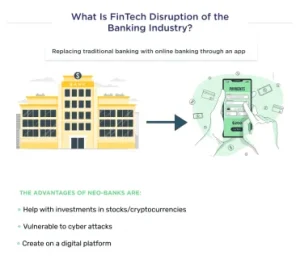Crypto Currency and The Global Economy : In the latter years of the 2000s, a groundbreaking digital innovation known as cryptocurrency began to carve its niche in the fabric of global finance. Birthed by the enigmatic Satoshi Nakamoto with the launch of Bitcoin in 2009, this novel concept represented more than just a new form of currency. It heralded the advent of a decentralized financial future, challenging the traditional, centrally governed financial system that have been in place for centuries. Crypto Currency and The Global Economy
Bitcoin, built on the revolutionary blockchain technology, introduced a decentralized ledger system that promised a world where financial transactions could be executed without the need for intermediaries such as banks. This was not just a technological leap but a conceptual one, offering a vision of financial inclusivity and autonomy that was previously unimaginable.

Crypto Currency and The Global Economy
The proliferation of cryptocurrencies in the years that followed has been nothing short of astonishing. The crypto ecosystem burgeoned, with thousands of digital currencies making their mark and pushing the collective market capitalization into the trillions. This meteoric rise underscored the growing appetite for digital assets and the belief in their potential to redefine wealth storage, investment, and transactions on a global scale.
The appeal of cryptocurrencies extends beyond their financial value, embodying the principles of privacy, security, and autonomy. They offer a beacon of hope for the unbanked and underbanked populations by providing access to financial services without the prerequisites demanded by traditional banking institutions. This shift towards a more inclusive financial model is one of the most profound impacts of cryptocurrencies, suggesting a future where financial empowerment is accessible to all. Crypto Currency and The Global Economy
Cryptocurrency and the Global Financial System
The Rise of Digital Assets

The rise of digital assets, particularly cryptocurrencies, represents a significant shift in the financial landscape, mirroring the evolution of the internet from a technical curiosity to an integral part of daily life. This transformation has seen cryptocurrencies grow from their inception as an experimental form of digital money to becoming a major financial phenomenon with a substantial impact on the global economy. Crypto Currency and The Global Economy
As of early 2023, the market capitalzation of cryptocurrencies exceeded $2 trillion, indicating not just speculative interest but a growing acceptance of digital currencies as a legitimate financial asset. Market capitalization is a crucial metric in the financial world, representing the total value of all tokens available for a particular cryptocurrency, calculated by multiplaying the current price of a single token by the total number in circulation.
Capitalzation of Cryptocurrencies
- Decentralization: Unlike traditional financial systems, cryptocurrencies operate on decentralized networks, typically blockchain technology. This decentralization offers advantages like enhanced security, reduced risk of censorship, and greater control over one’s assets.
- Accessibility and Inclusion: Cryptocurrencies make financial services more accessible to people worldwide, including those without traditional bank accounts. This inclusivity has the potential to revolutionize financial participation on a global scale.
- Innovation in Financial Services: The cryptocurrency space is a hotbed for innovation, including DeFi (Decentralized Finance) platforms that offer lending, borrowing, and earning interest on cryptocurrency holdings without the need for traditional banks. Crypto Currency and The Global Economy
- Speculation and Investment Opportunities: The volatility of cryptocurrencies, while a risk, also presents significant opportunities for speculation and investment. Many investors are drawn to the potential for high returns, despite the risks involved.
- Increasing Institutional Adoption: As the market matures, more institutional investors, corporations, and financial entities are entering the space, adding legitimacy and stability to the market.
- Regulatory Developments: Although regulatory clarity is still evolving, steps towards more defined frameworks can enhance market stability and investor confidence.
The growth of cryptocurrencies is also indicative of a broader trend toward digitalization in the financial sector and the exploration of blockchain technology’s potential beyond digital currencies, including areas like supply chain management, digital identity, and more. Crypto Currency and The Global Economy
As the technology and regulatory landscape continue to evolve, the role and impact of cryptocurrencies and other digital assets are likely to expand, potentially reshaping aspects of the global economy and financial systems.
Disruption in Traditional Banking and Finance

The disruption in traditional banking and financial caused by cryptocurrencies represents a significant shift in how financial services are accessed and delivered globally. By leveraging decentralized financial services, cryptocurrencies pose a challenge to the conventional banking system, which has been the cornerstone of financial transactions for centuries. This shift is not merely technological but also fundamentally democratic, offering a broader swath of the global population access to financial resources that were previously out of reach. Crypto Currency and The Global Economy
Crypto Currency and The Global Economy

